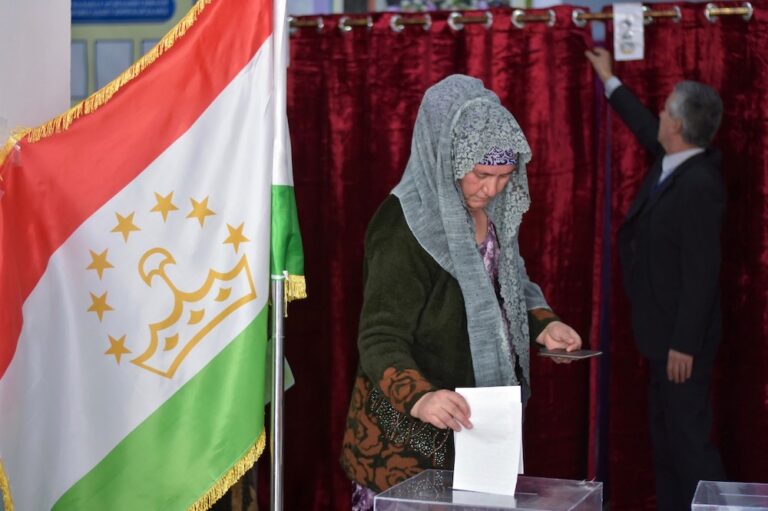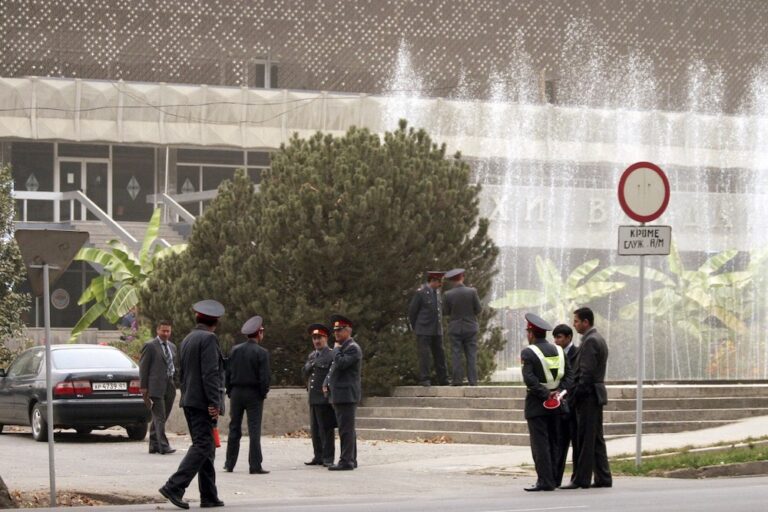(CPJ/IFEX) – The following is a 26 July 2007 press release: CPJ calls on Tajik president to veto Internet criminal defamation bill New York, July 26, 2007 – The Committee to Protect Journalists calls on Tajikistan President Emomali Rahmon to veto amendments to the country’s criminal code that would broaden its defamation laws to include […]
(CPJ/IFEX) – The following is a 26 July 2007 press release:
CPJ calls on Tajik president to veto Internet criminal defamation bill
New York, July 26, 2007 – The Committee to Protect Journalists calls on Tajikistan President Emomali Rahmon to veto amendments to the country’s criminal code that would broaden its defamation laws to include Internet publications. Amendments to several articles of the penal code were adopted by the upper house of Tajikistan’s parliament on July 19, according to CPJ sources. The bill is now with the president for his consideration.
“We call on President Rahmon to veto these restrictive new amendments to Tajikistan’s criminal law,” said CPJ’s Executive Director Joel Simon. “They would effectively criminalize critical reporting and commentary on Internet news sites. We ask Tajik authorities to decriminalize defamation altogether. Journalists should not be imprisoned for their work.”
The amendments to Articles 135 and 136 which concern libel and insult would criminalize defamatory statements published on Web sites in addition to those made in print and broadcast media. Such amendments could cause self-censorship among contributors to popular Central Asia news Web sites such as Ferghana and Centrasia or Tajikistan-specific opposition news Web sites such as Charogiruz and Tajikistantimes, according to CPJ sources in the region. CPJ research shows that these Web sites are popular among Tajik audiences as alternative news sources.
The existing penalties for criminal insult and defamation committed through print and broadcast publications would be extended to the Internet. These range from a fine of up to the equivalent of 1,000 monthly Tajik salaries at minimum wage (the local equivalent of about US$6,000), to up to 240 hours of community service or up to two years in prison.
Abdughafor Abdujabborov, a cultural ministry spokesman, said the new amendments would make people more accountable for deliberately spreading libelous information. “There do need to be instruments to make people think about the consequences of their actions before they do anything,” the London-based Institute for War and Peace Reporting quoted Abdijabborov as saying.
Until now, the government of Tajikistan has not formally regulated the Internet. Access to Web sites, especially opposition news sites operated from abroad, is sometimes poor, but there is no hard evidence that the government has been actively involved in blocking them.
Mukhtor Bokizoda, director of the Tajik press freedom group Foundation for the Commemoration and Protection of Journalists, told CPJ that he is worried about the amendments, saying that Tajik officials tend to interpret any criticism of themselves as libel and sue the critics.
CPJ is a New York-based, independent, nonprofit organization that works to safeguard press freedom worldwide. For more information, visit http://www.cpj.org


